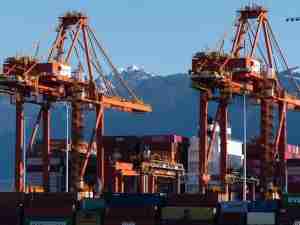Chancellor Olaf Scholz warned German business leaders that they should act now to hedge risks and avoid over-reliance on China as his government pushes to diversify commercial ties in Asia.
Scholz told a business conference in Singapore Monday that his ruling coalition was currently drawing up a new national security strategy, including a call for the scaling back of “risky, one-sided dependencies” in areas including raw materials and critical technologies.
“Diversification makes your businesses less vulnerable –- and our economies more stable and secure,” Scholz told an audience of executives and policy makers.
“Diversification however doesn’t mean decoupling,” he added. “That difference matters at a time when concepts such as near-shoring, de-globalisation and self-sufficiency are gaining traction.”
The ruling coalition in Berlin is stepping up efforts to develop alternative markets for Europe’s largest economy after Russia’s invasion of Ukraine highlighted the dangers of over-dependence on one country.
Moscow’s decision to halt gas deliveries and deploy energy as a political weapon underscored Europe’s heavy dependency on Russian fossil fuels, and governments are now also reevaluating potential risks in their trading relationships with China.
Scholz and Economy Minister Robert Habeck haven taken separate corporate delegations to Vietnam and Singapore over the weekend before the chancellor heads to Indonesia for the Group of 20 summit.
Scholz told Monday’s business conference that the recent Communist Party congress had left little doubt that China has changed significantly over the past decade. “Our political and economic approach needs to reflect that,” the chancellor said.
‘Two to Tango’
“Of course, China remains an important business and trading partner,” he said. “And I know that many of you here in this room and in the region share this view. But it always takes two to tango.”
Both Scholz and Habeck used their speeches at the 17th Asia-Pacific Conference of German Business to lobby for closer economic ties between Germany and countries in the region.
On Sunday, Scholz met his Vietnamese counterpart and business representatives in Hanoi, where both sides agreed to deepen economic cooperation on energy, raw materials, climate protection and vocational training.
“De-globalisation is not an option for any one of us,” Scholz said. “Take the fight against climate change, against global health crises and food insecurity, or the transformation toward climate-neutral economies,” he added. “Innovation is the key to all of these global challenges. More trade barriers, however, would lead to less competition and less innovation.”
Habeck indirectly warned German business leaders that there could be a scenario in which they would be forced to turn away from China if Beijing escalated conflict with Taiwan.
“We advise against decoupling, unless such decoupling becomes mandatory, for example if one of the partners leaves the framework of international relations -- as Russia did by invading Ukraine,” Habeck said.
“Decoupling is not synonymous with diversification,” he added. “They are in fact completely different things. Decoupling is about severance, diversification is about new connections.”








